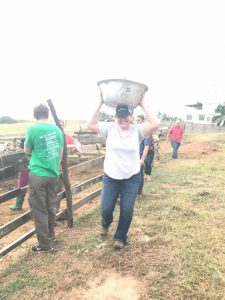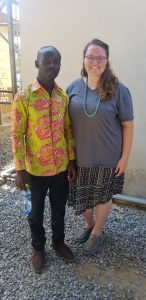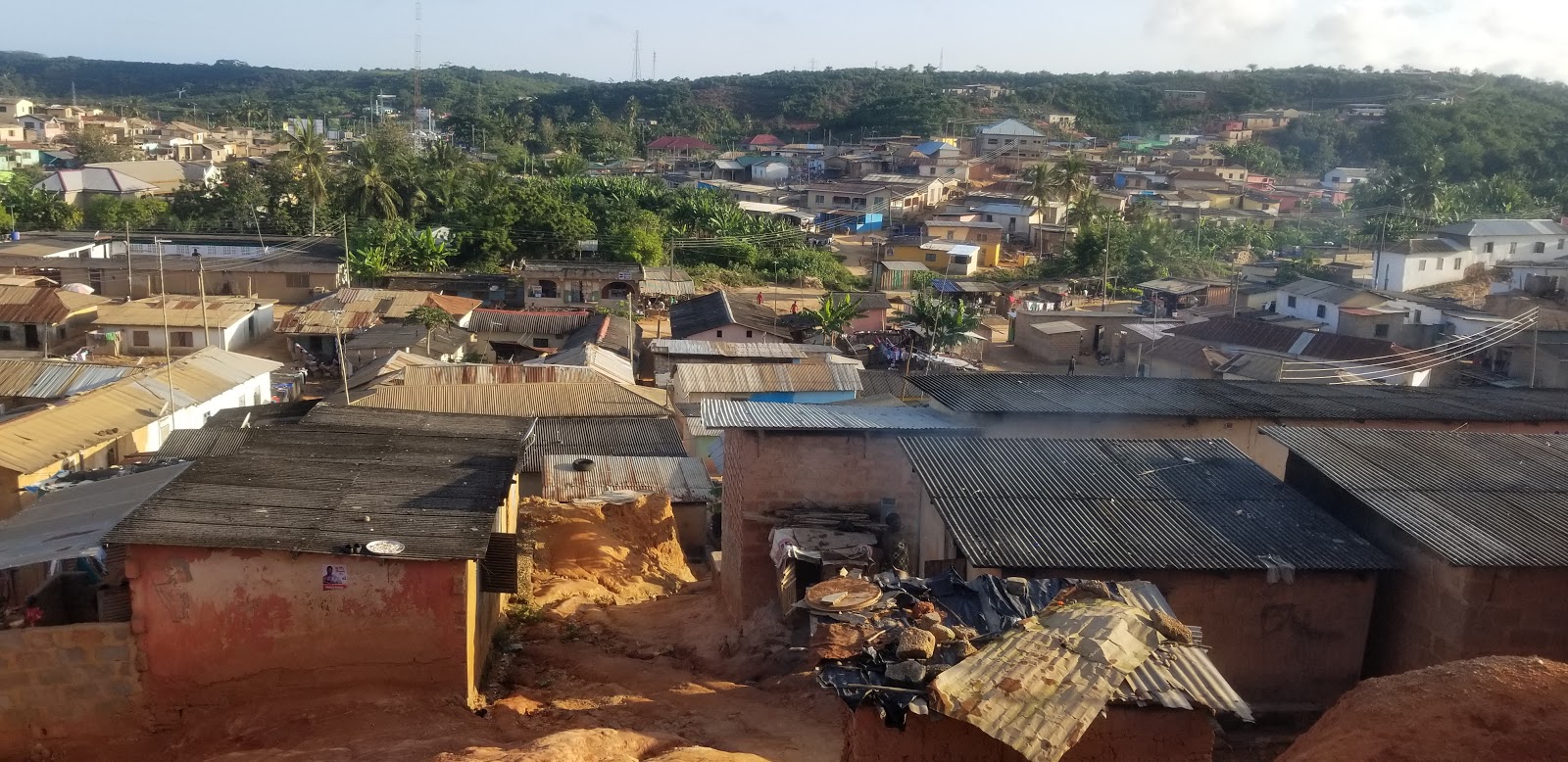The temperature has finally cooled to a breezy 27 ℃ after it had reached its peak of 32 ℃ earlier in the day. The sun is starting to set and the golden hour is upon us. The way the sun makes everything glow only makes me fall more in love with Yamoransa and I feel the familiar ache of never wanting to leave this beautiful place.
As I’m walking down the street on my way home, I hear the familiar sound of my friends, students and children calling my name: “Sister Ama, how are you?” “Madame Annie, I will see you at school tomorrow!” These greetings bring me so much comfort as I have finally made this new place my home and I can’t help but smile.
The experience of walking home has changed so much in the last four weeks. In fact, when I first arrived in my community I absolutely dreaded it. I had no desire to walk down the street and be sought out by small children and adults of all ages calling out: “Obroni! Obroni!” In Ghana, the term “obroni” is used for a white person or white foreigner. My introvert personality was absolutely petrified. I couldn’t even sit outside my home without hearing the term from those passing by.
Obroni is by no means a negative word, but I took it to heart every time I heard it. It was very frustrating that rather than asking my name or getting to know me, they would call me out and usually giggle at my lack of ability to speak Fante, the form of Twi spoken in the Central Region of Ghana. This whole experience was very frustrating and was holding me back from what I was meant to do here in Yamoransa. I couldn’t get past the fact that no one would be treated like this back in the United States. I would never call someone out as they were walking down the street purely based on the color of their skin. I couldn’t wrap my head around why this was so appropriate here. I was blindsided by this treatment and it absolutely overwhelmed me. I was not expecting to be so sequestered for being white.
After two weeks of doing my best to avoid walking in very populated places or even hurriedly walking to school every day, I decided enough was enough. My introvert personality was holding me back, and I have such a limited time here in my community that something needed to change. At that point, I decided that from then on I would take every shout of “Obroni!” as an opportunity to meet someone new. Rather than sheepishly smile, duck my head and walk quickly away, I took the time to ask the person’s name and also tell them mine. I quickly found out that Ama, the Fante name for a woman who is born on Saturday, is much easier to say than Annie. I also found out that people were just as eager to talk to me. It amazed me that white people were thought so highly of in Ghanaian culture. Many people had so many questions for me about where I come from, my family and what my views were about Ghana before arriving.
 I felt so silly for wasting the past two weeks but this was only one of the few things I had to adjust to in order to make Yamoransa my home. Being an obroni has many advantages and disadvantages, including children always wanting to carry my things for me, being served way too much food (along with being chastised for not being able to finish my plate) and also being asked for money. Although I am still often called obroni, it no longer carries the negative connotation that I created in my mind. Rather, it has become a way for me to become more immersed in my community and learn more about Ghanaian culture.
I felt so silly for wasting the past two weeks but this was only one of the few things I had to adjust to in order to make Yamoransa my home. Being an obroni has many advantages and disadvantages, including children always wanting to carry my things for me, being served way too much food (along with being chastised for not being able to finish my plate) and also being asked for money. Although I am still often called obroni, it no longer carries the negative connotation that I created in my mind. Rather, it has become a way for me to become more immersed in my community and learn more about Ghanaian culture.
Annie Palmer received a degree in Animal Science for Northwest Missouri State University. Before serving as an AgriCorps Fellow Annie was involved in 4-H and FFA.


